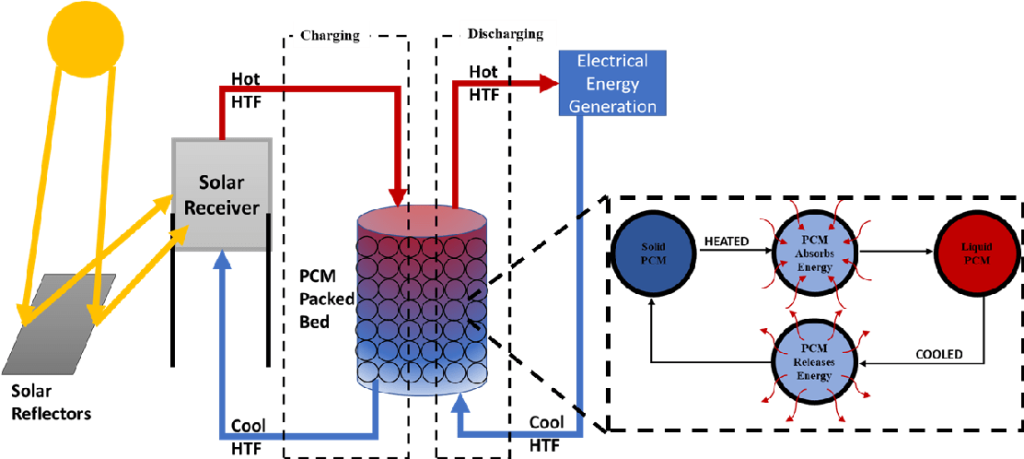For heat and mass transfer through a stationary or streamline fluid to a single spherical particle, it has been shown in Volume 1, Chapter 9, that the heat and mass transfer coefficients reach limiting low values given by:

where Nu_(= hd/k) and Sh_(= hDd/D) are the Nusselt and Sherwood numbers with respect to the fluid, respectively. KRAMERS(41) has shown that, for conditions of forced convection, the heat transfer coefficient can be represented by:

where Re_c is the particle Reynolds number ucdρ/μ based on the superficial velocity uc of the fluid, and Pr is the Prandtl number Cpμ/k. This expression has been obtained on the basis of experimental results obtained with fluids of Prandtl numbers ranging from 0.7 to 380. For natural convection, RANZ and MARSHALL(42) have given:

where Gr_ is the Grashof number discussed in Volume 1, Chapter 9. Results for packed beds are much more difficult to obtain because the driving force cannot be measured very readily, GUPTA and THODOS(43) suggest that the j -factor for heat transfer, jh (Volume 1, Chapter 9), forms the most satisfactory basis of correlation for experimental results and have proposed that:


The j -factors for heat and mass transfer, jh and jd , are found to be equal, and therefore equation 4.44 can also be used for the calculation of mass transfer rates.
Reproducible correlations for the heat transfer coefficient between a fluid flowing through a packed bed and the cylindrical wall of the container are very difficult to obtain.
The main difficulty is that a wide range of packing conditions can occur in the vicinity of the walls. However, the results quoted by ZENZ and OTHMER(44) suggest that:

It may be noted that in this expression the Nusselt number with respect to the tube wall Nu is related to the Reynolds number with respect to the particle
Re_c.


